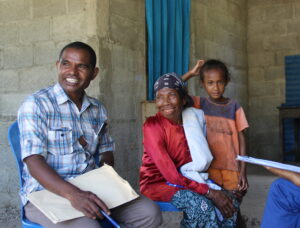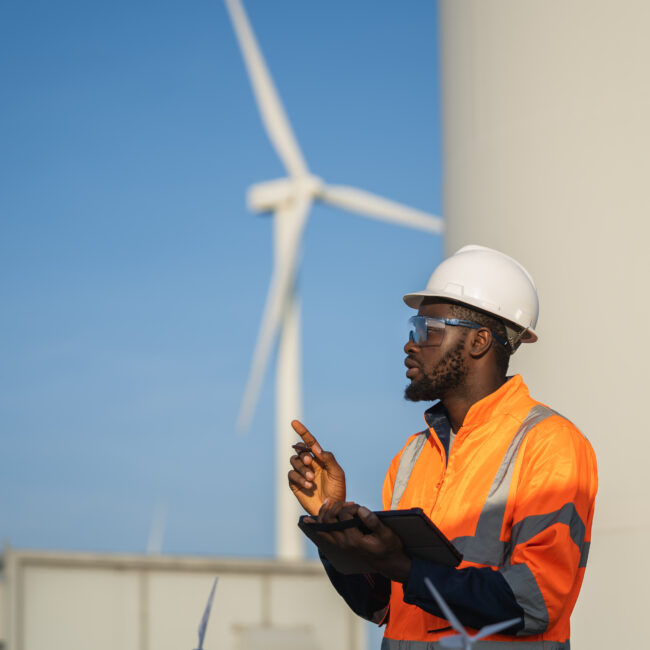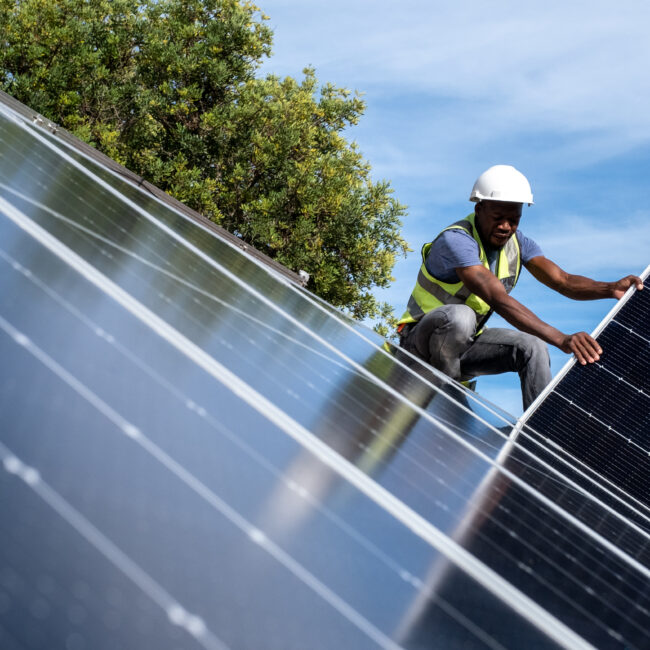Authored by Pablo Fernandez, CEO.
Moderator: Susie Wheeldon, Head of Communications, GOGLA
Panellists:
Rosalie Marsden, Senior Associate, Acumen
William Brent, CMO, Husk Power Systems (Minigrids – Nigeria)
Dennis Nderitu, Energy Systems Manager, Global Energy Alliance for People and Planet
Pablo Fernandez, CEO, ecosecurities
This excellent event, part of London Climate Action Week, offered an invaluable platform for discussing the urgent issue of accelerating clean energy access in Africa. With approximately 600 million people on the continent lacking electricity, the demand for sustainable energy solutions is critical. Off-grid solar and mini-grid systems stand out as transformative solutions, providing reliable electricity while significantly reducing reliance on fossil fuels. However, scaling these solutions requires substantial investment, making carbon finance a crucial element.
Challenges in quantifying adaptation benefits
Our discussions highlighted both the potential and the hurdles of using carbon finance for expanding energy access. A major challenge is quantifying the adaptation benefits of decentralized renewable energy projects. Acumen emphasized the complexity of measuring and reporting these benefits effectively without overwhelming companies. HUSK pointed out the financial strain on small and medium-sized enterprises (SMEs) attempting to access carbon finance, a concern I relate to deeply, given my personal experience with SMEs navigating these financial challenges.
Solutions for unlocking carbon finance
In our quest for solutions, the concept of aggregation emerged as a promising strategy. Aggregation platforms can ease the administrative burdens on SMEs, enabling them to monetize carbon offsets from projects that replace traditional energy sources like diesel. The World Bank’s “State and Trends of Carbon Pricing 2024” report highlights the potential of carbon finance to support clean energy projects, a point echoed in our discussions. Simplifying processes and making smaller projects more attractive to investors in the carbon market was met with enthusiasm, signalling a positive outlook on this approach.
Role of carbon markets in mitigation and adaptation
A central theme was the dual benefits of mitigation and adaptation offered by off-grid solar and mini-grid projects. According to the International Renewable Energy Agency (IRENA), renewable energy could account for nearly half of Africa’s total electricity generation by 2030, cutting carbon emissions significantly. While mitigation benefits, such as reducing emissions, are easier to quantify and finance, adaptation benefits like building resilience and economic empowerment are more complex. I believe that improving the communication of these co-benefits could help achieve higher prices for carbon credits. GEAPP underscored the potential of enhanced reporting of co-benefits, drawing from successful examples like clean cookstoves.
Marketplace initiatives and policy advocacy
GEAPP’s insights into marketplace initiatives reinforced the importance of efficient marketplaces and supportive policies. The Climate Finance Landscape by Climate Policy Initiative (CPI) reveals that only a small portion of global climate finance goes toward adaptation. Initiatives that connect project developers with carbon credit buyers are vital for fostering a more dynamic marketplace for smaller-scale energy access projects. GEAPP highlighted the need for a conducive policy environment, aligning with international agreements such as Article 6 of the Paris Agreement, to attract significant investments and improve carbon credit prices.
Future prospects and challenges
Looking ahead, there was a clear sense of optimism among the panelists. The African Development Bank projects that investment in mini-grids could provide electricity to an additional 140 million rural Africans by 2030. However, improving methodologies and ongoing data collection efforts are essential to scaling adaptation finance effectively. We recognized the complexities of navigating bilateral agreements and compliance markets across Africa’s diverse landscape but shared a commitment to streamlining approaches and reducing transaction costs. This collaborative spirit is crucial for meeting future climate finance targets.
Reflecting on the event, I am inspired and motivated. Despite the challenges in quantifying adaptation benefits and navigating complex carbon markets, the path forward is clear. Through collaboration, innovation, and policy advocacy, we can unlock the full potential of carbon finance for energy access in Africa. This approach addresses climate change mitigation while fostering resilience and economic growth in communities that need it most. Participating in this event reaffirmed the collective power we have to drive meaningful change. Together, we can turn challenges into opportunities and pave the way for a brighter, more sustainable future for Africa.
The recording of the full event can be found here: https://lnkd.in/g_imPDWs
(Passcode: LW!8h5!R)

“I am inspired and motivated. Despite the challenges in quantifying adaptation benefits and navigating complex carbon markets, the path forward is clear. Through collaboration, innovation, and policy advocacy, we can unlock the full potential of carbon finance for energy access in Africa.”
Pablo Fernandez
CEO, EcoSecurities



